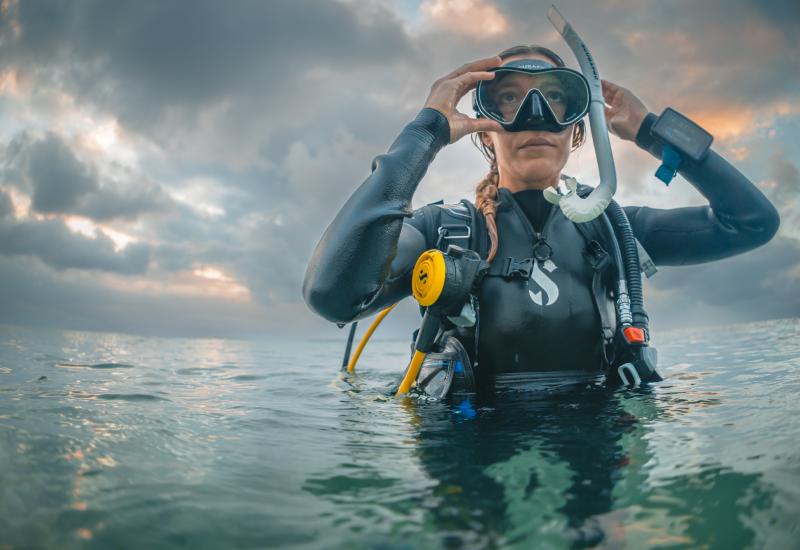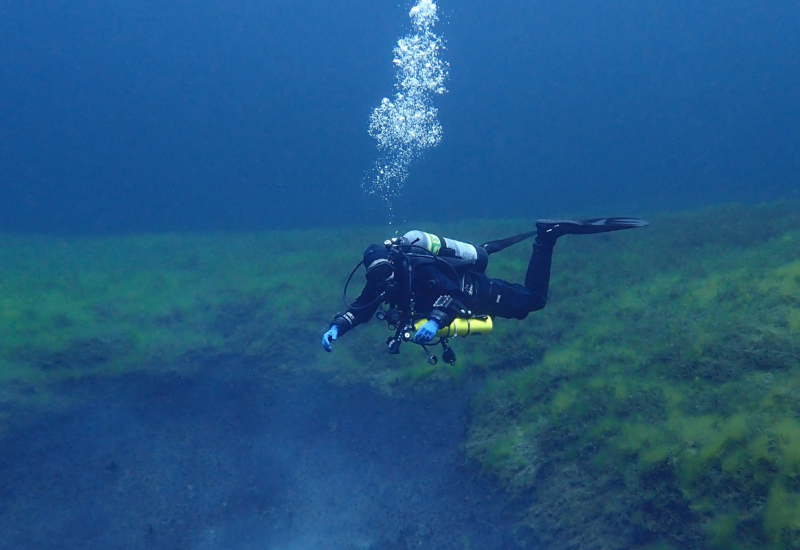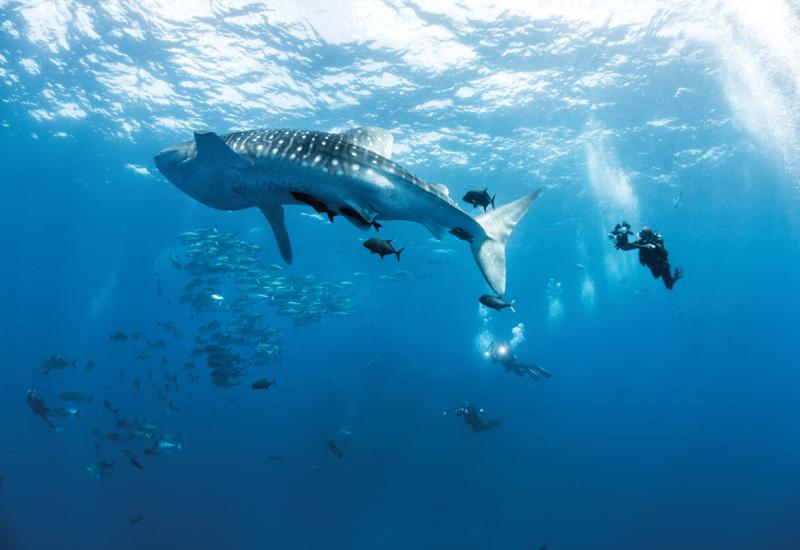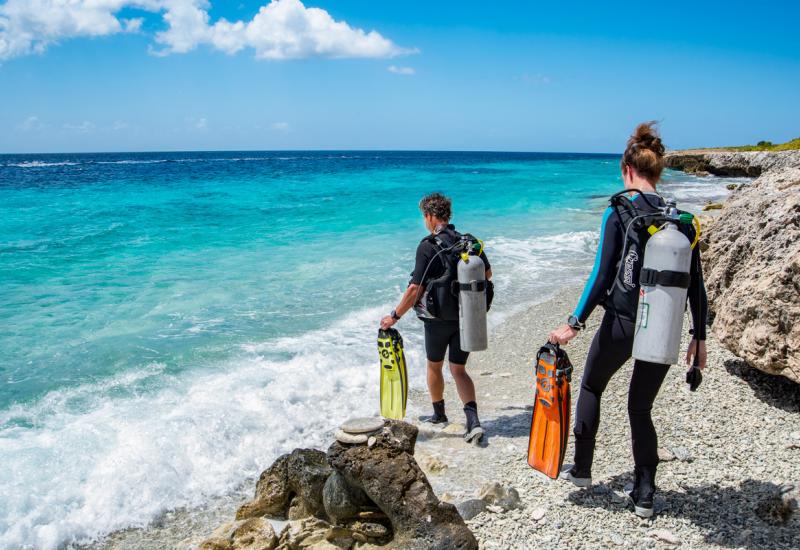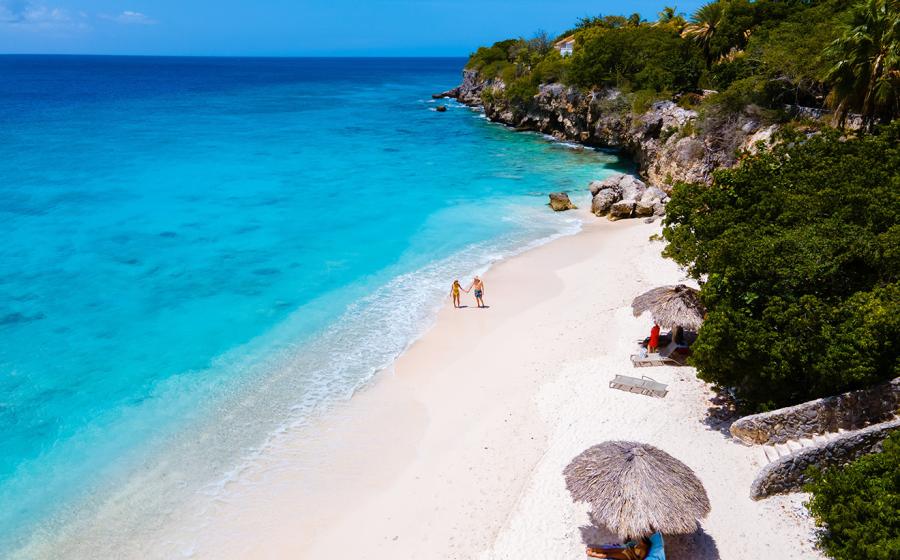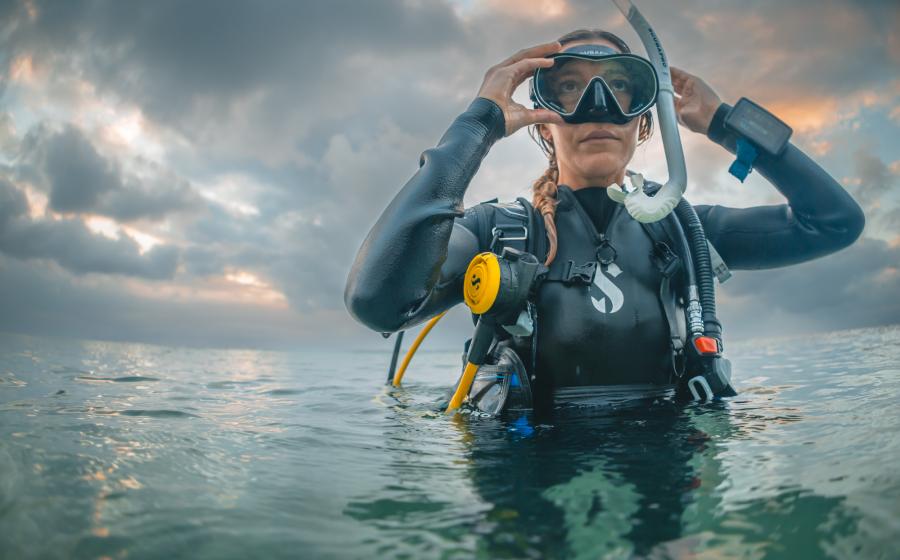How to Build a Community of Dive Buddies
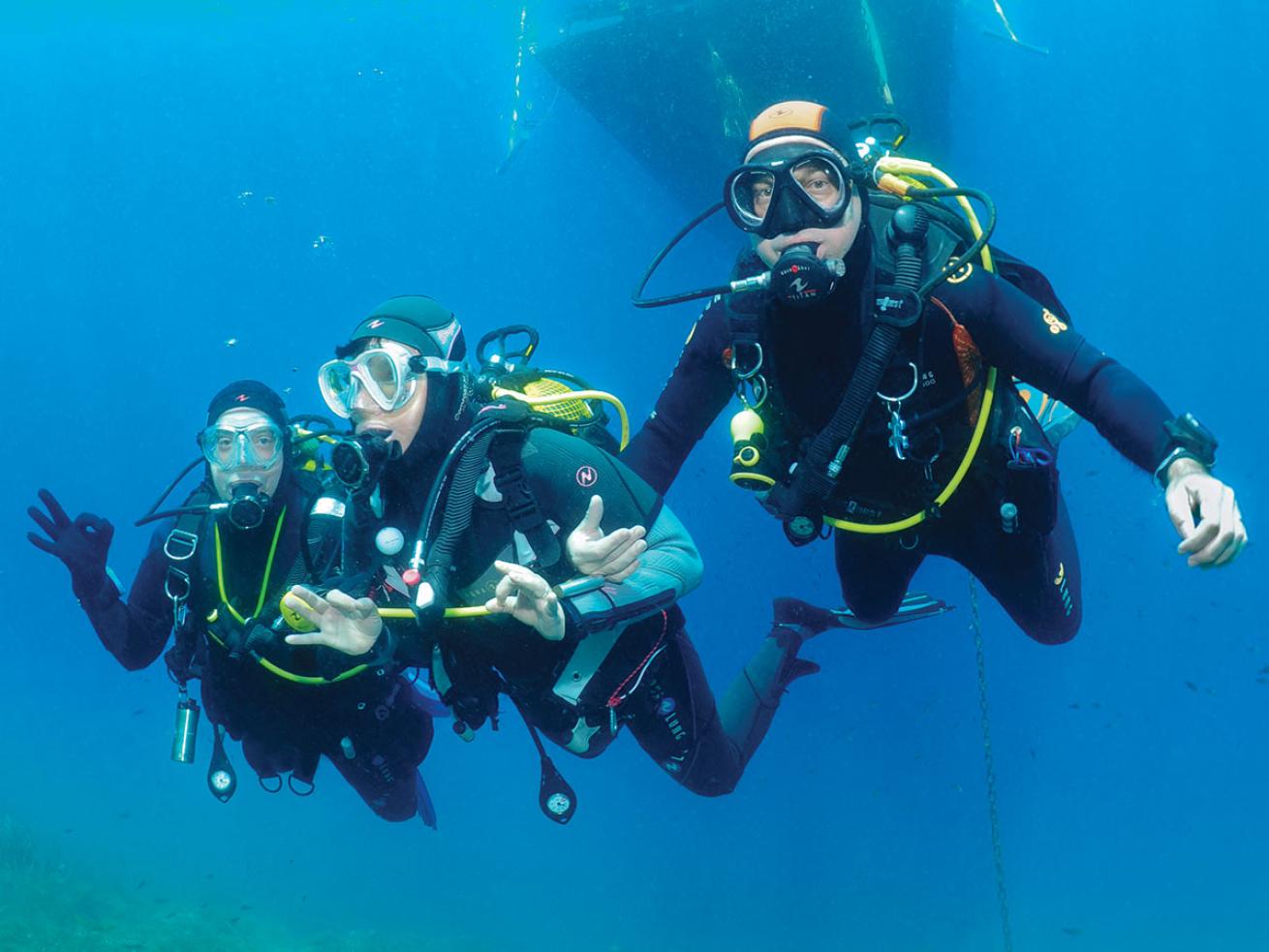
Jean Cassou/BiosPhotoBeing a lone wolf diver is simply not a safe option.
Diving is a team sport. As much as we might like to believe our favorite activity is a deeply personal, solitary experience, marked by introspection as we commune intimately with nature, the fact is that we are never far from our buddies—and that’s a very good thing.
Because unless you survey the dominion of diving from high atop that golden pyramid of training and experience, being a lone wolf is simply not a safe option. Like Cousteau, every good diver needs a crew.
Creating a community of like-minded enthusiasts around us offers many important advantages, and the benefits of building a network of excited, experienced and active divers are many and valuable.
Because whether it’s one buddy or 12, we’re in it together. And most times, more truly is merrier.
Here are four reasons to consider building your personal dive community.
Dive more often
Are you satisfied with how often you’re diving? If you feel like you’re not getting in the water enough to scratch that itch properly, a community can be the psychological, or physical, push into the pool that we all need every now and then. When you are part of a group, there’s more of everything—more incentive to plan ahead, more rich anticipation to savor, more motivation to rise at first light, more cause to stay off the bottom, more motive to bake brownies for the surface interval and more reason to celebrate the sunset after a full day of diving—because you get to share it with folks who “get it.”
Group think can be a positive thing. When conditions are marginal and you’re tempted to call the dive in favor of a warm bed, knowing that your buddies are counting on you to show up and giant-stride might be the fuel to your fire that gets you out of the sheets. And when you’re diving with a group, poor visibility doesn’t seem so sad, ripping currents can be a joyride and any marine life that does bother to emerge from the murk will be all the more interesting.
Stretch your budget
Groups command buying power, both locally and abroad. When you’re shopping for one, you’re often stuck with paying the rack rate. However, when there’s a dozen or more divers ready to drop their credit card numbers, operators, liveaboards and resorts around the world are more likely to offer a discount because they know their entire roster will be full.
Dive clubs, both independent and those affiliated with local dive shops, can leverage their numbers to secure rebates on international travel, making dream destinations more affordable and attainable for more of us. Splitting accommodations can help frugal travelers stretch lodging budgets and often allow groups to afford a higher level of luxury than they might on their own—not to mention the other incidental costs of travel, such as transportation and dry-day excursions. In addition, groups know the special joy of having the entire boat to themselves.
Learn new things
There’s always someone smarter and more experienced than you on the dive boat. When those alpha divers are among your buddies, their skill and experience can rub off in all the right ways. Not only can sharing the water with better divers inspire you to try harder and be more situationally aware, but it also can help you develop better habits. These divers have learned their lessons the hard way, and if you pay attention and ask the right questions, you won’t have to repeat the same mistakes. By watching how they prepare thoughtfully, execute cleanly and finish strong, you’ll pick up pointers that are typically only earned through hard time.
Another fringe benefit of good company is specialty expertise. From photography to equipment and technical diving of all sorts, when there are sage experts in your crew to help with gear preparation, lens selection, gas mixes, decompression strategy and wreck penetration, you’ll benefit from their advanced training and likely gain inspiration to accomplish some new C-cards of your own.
Make better memories
The shark was how big? When you’re bragging at the bar about the bull shark that you stared down, the bystanders who call BS will be silenced when your buddy backs up your story. That level of support isn’t possible if you’re diving with strangers. Group experiences will make your dive stories all the richer with multiple perspectives—especially when there are buddies with cameras to capture the action. The same goes for mayhem and misadventures, as few experiences build stronger bonds than collective suffering. And there are no fonder remembrances than those shared among friends.
The Hack: How to Build a Community of Buddies
There’s no diver dating app, so consider these sources for expanding your inner circle.
- Dive Clubs: Since the early days of recreational diving, dive clubs have been at the heart of dive culture.
There are hundreds of groups scattered around the nation catering to divers of every background and interest, as well as national organizations such as the National Association of Black Scuba Divers; Diving for Life, which serves LGBTQ divers; and even the National Marine Sanctuaries’ Ocean Guardian Dive Club for kids 8 to 12.
A quick web search can identify dive clubs in your area; most are happy to welcome new members. Show up at a meeting and introduce yourself. You already have something important in common with these friends whom you just haven’t met yet.
- Local Dive Shop: The pulse of dive culture beats strong in your local dive shop, so it’s a great place to meet new people.
Start by connecting with staff, who typically know the regulars, and ask for introductions to divers who share a similar skill level, passion for photography, addiction to gear or other common interest.
- Training Classes: Your open water class was full of new divers just like you. But if you didn’t make a personal connection that lasts beyond the last check-out dive try again.
Advanced certifications tend to weed out the uncommitted and increase your chances of finding someone as hardcore as you. Specialties offer an even more focused selection.
- Online Groups: While there’s no substitute for human interaction, online groups offer an option for geographically isolated or socially challenged divers to make remote connections.
Forums such as ScubaBoard are a good place to start, and there are dozens of public and private groups on Facebook, including Scuba Diving’s Scuba Diving Gear Discussion and Tips group and Sport Diver’s Scuba Diving Travel and Tips group.

